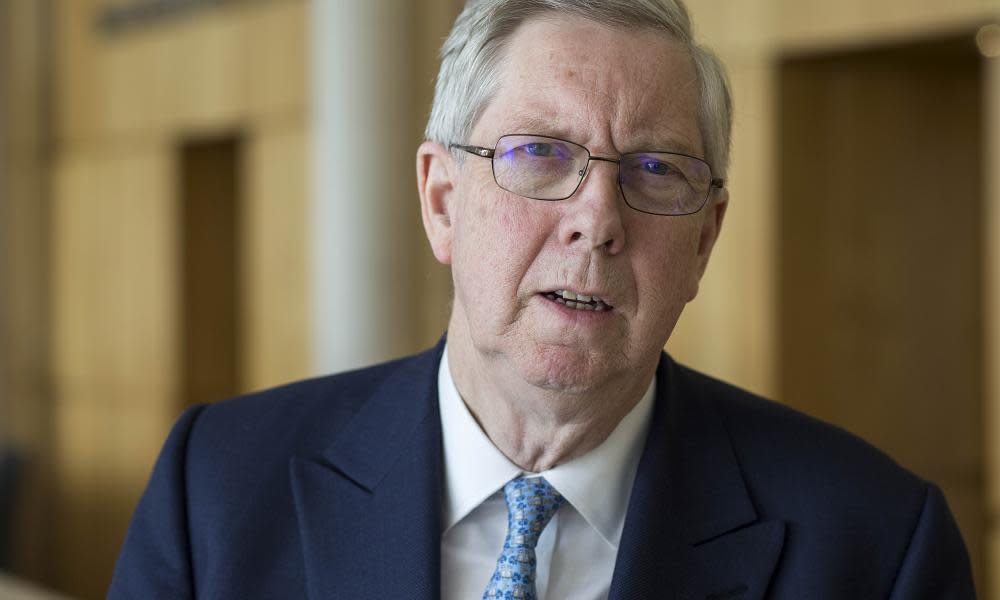Can Clementi’s appliance of science get Leavers off BBC’s back?

One hapless offer has a habit of leading to another. Thus, three months ago, Sir David Clementi, incoming chairman of the BBC, told culture committee MPs that “impartiality, independence and accuracy” were ideals that drove him. He vowed that, in office, he would seek “scientific” research to ensure that corporation coverage of the post-Brexit world remained scrupulously impartial.
Clementi also promised he’d call Tony Hall, the director general, and James Harding, the director of news and current affairs, before his new unitary board. “The board is bound to inquire exactly how they are seeking to achieve impartiality. I presume there has been some work after the Brexit referendum on how well the BBC has achieved this.”
So enter now - pat on schedule - a round robin letter from MPs addressed to Lord Hall, but notably copied to Clementi. “The corporation’s focus on “regretful” Leave voters, despite there being no polling shift towards Remain since the referendum, has led some to believe it is putting its preconceptions before the facts … Meanwhile, the posturing of EU figures is too often presented as facts, without the vital context that they are talking tough [before] exit negotiations.”
Of course, this is another awful warning with menaces. “Many Leave-voting constituencies have felt that their views have been unfairly represented” by the BBC, apparently. That’s an issue “weakening the BBC’s bond with the 52% who voted Leave and all who wish to make a success of the decision made”. Watch “trust” weaken. Watch parliament gradually push for more of an editing role.
And here, underlining that threat, comes John Whittingdale, the culture secretary, who rewrote the charter which gives Clementi his job. Why, “the corporation is constantly looking for negatives and highlighting the challenges” of Brexit. Why, if this negative coverage persists, MPs could “escalate” their complaints to Ofcom, which takes over regulation of the BBC in a fortnight.
The problem for Clementi, just as for Tony Hall, is knowing how on Earth what he calls “scientific research” can shut such nonsense down.
The MPs’ letter is notably short of examples, however derived. The fact that it so hugely excited the Daily Mail on day one butters no parsnips. For, as we’re surely beginning to realise, with two or more years of negotiation stretching ahead, it’s impossible to explain the course of the dealings without upsetting someone: Remainers, Leavers, the EU. Constituents of all persuasions need to know what the arguments are, where compromises exist, who won the last round, what “the best deal for Britain” looks like.
Weigh that down with a nervous witter of he said/she said and no one will understand what the hell’s going on. Pavilion it in pseudo-scientific claptrap - two minutes of that, two minutes of that - and meaning dies. Which isn’t what the BBC, or its news unitary board, is there for. Hopefully, Clementi has gathered enough expertise around his table to steer him through. Steve Morrisonfrom Scotland and Granada, like and Nicholas Serota from Whitechapel and the Tate are seasoned players of tough old games. Tanni Grey-Thompson doesn’t cave in. They know that that impartiality isn’t the natural friend of independence: just the reverse.

 Yahoo News
Yahoo News 
